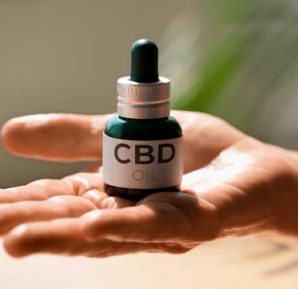Discover the latest journalistic insights into the health benefits of CBD. Uncover the latest trends, research insights, and expert perspectives on the wellness potential of cannabidiol.
The non-psychoactive cannabinoid cannabidiol, or CBD, found in cannabis, has recently become a wellness craze. It offers a soft prod towards healthier living without the glaring negative side effects, and its varied treatment arsenal shows promise for several health conditions. Let’s take a trip through the health benefits of CBD, highlighting its ability to improve health while consciously reducing negative side effects.
The Therapeutic Toolbox Revealed
A plethora of properties found in CBD’s medicinal toolset have the potential to open doors to better health:
Inhibitor of Inflammation
Chronic inflammation is a hallmark of many health problems, but CBD’s anti-inflammatory properties make short work of it. Conditions like arthritis, autoimmune illnesses, and chronic pain syndromes may find relief from pain, swelling, and improved symptom management with the use of CBD, which inhibits inflammatory pathways.
Relieving Anxiety
The soothing and anxiolytic effects of CBD might help ease the knot in our bellies. We may be able to breathe a little easier if CBD helps with anxiety disorders, social anxiety, and post-traumatic stress disorder (PTSD) symptoms by regulating the body’s stress response systems and encouraging relaxation.
The Calm Companion of Sleep
Weaknesses in health are exacerbated by sleeplessness and restless nights. The endocannabinoid system may be the mechanism by which CBD promotes sleep, which might help us fall asleep more easily and have a more restorative night’s sleep. Restorative nights are within reach for those who suffer from insomnia, sleep interruptions brought on by worry or chronic pain, or those caused by the natural aging process.
Neuroprotective Shield
Neurodegenerative diseases, such as Alzheimer’s and Parkinson’s, cause a gradual deterioration of brain function; a neuroprotective shield can slow this down. Potentially reducing brain damage and disease development, CBD possesses neuroprotective characteristics such as antioxidant and anti-inflammatory actions. Although studies are still in their early stages, the promising results so far point to potential therapeutic applications that could protect our brains’ critical functions.
An Ally for Epilepsy
Seizures are a symptom of epilepsy, a neurological disease that can severely limit a person’s daily life. One example of CBD’s potential in this field is Epidiolex, the first medicine of its sort to be licensed by the FDA for the treatment of certain types of pediatric epilepsy. Those who suffer from various forms of epilepsy can only hope that more research will reveal how effective it is in managing these conditions.
Going Deep: Illuminating Particular Situations
Beyond these broad categories, CBD shines a light on strategies for better health in particular conditions:
Skin Health
Acne, eczema, and psoriasis are skin problems that CBD’s antioxidant and anti-inflammatory qualities may help alleviate. Additionally, it may be able to regulate oily skin by modulating sebum production, which would restore our skin’s natural radiance and health.
Heart Health
New evidence indicates that cannabidiol (CBD) may help maintain heart health by controlling inflammation, lowering blood pressure, and shielding cells from oxidative damage. Although more research is required, it suggests that our hearts could be doing well.
Help for the Digestive System
People suffering from IBS or inflammatory bowel disease may find relief from the symptoms they experience thanks to CBD’s anti-inflammatory and gut-regulating characteristics. The fact that it may regulate intestinal motility and reduce nausea is encouraging news for digestive health and the promotion of intestinal harmony.
Keeping the Shadows Dim: Limiting Side Effects
Although most people have no problems tolerating CBD, it is important to be informed of the possible adverse effects to explore it responsibly:
Lethargy
Some people, particularly those taking larger dosages of CBD, may experience lethargy or exhaustion as a side effect. You can manage this adverse effect by choosing the correct dosage and type.
Diarrhoea
Some people may experience gastrointestinal side effects, including diarrhoea, especially when taking larger doses or certain drugs at the same time. Keen vigilance and fine-tuning of dosage are essential.
Cannabidiol (CBD) may change the way some drugs work if used with others. Prior to including CBD in your routine, it is essential to consult with a healthcare expert.
Making a Plan for Reflective Investigation:
To completely enjoy the burgeoning benefits of CBD with minimal negative effects, it is essential to approach it with mindfulness:
Take it easy at first.
Watch your body closely as you start with low doses and increase them as needed.
Customise the Form
The absorption rates and effects of CBD can vary depending on the form you choose, such as oils, capsules, or topicals. To determine which form is best suited to your needs, speak with a healthcare provider or certified practitioner.
Talk to Doctors and Nurses
Before utilizing CBD, you must consult with a medical professional. This is particularly true for individuals with pre-existing problems or who are already on medication.
Opt for high-quality CBD products from trustworthy suppliers that have been third-party tested to verify purity and safety. Quality, not quantity, is what matters most.
Conclusion
Before using a new supplement, ask your doctor. They can help you determine if CBD is harmful. Anxiety, despair, and pain may be relieved by CBD, a naturally occurring cannabinoid. Use only third-party-tested CBD products to ensure quality. CBD has certain benefits, but the research is insufficient to draw a definitive conclusion.












